Christoph Prégardien, Graham Johnson - Schubert: Complete Songs, Vol. 23 (1994)
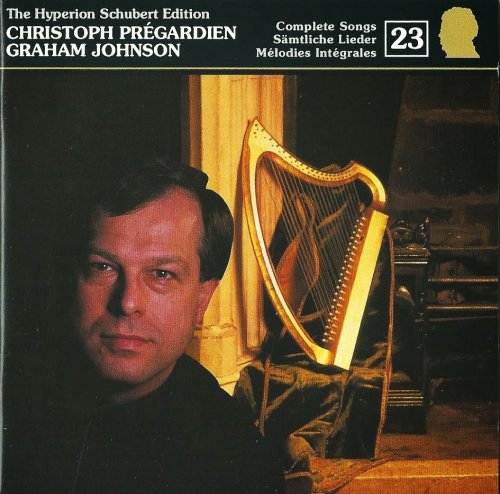
Artist: Christoph Prégardien, Graham Johnson
Title: Schubert: Complete Songs, Vol. 23
Year Of Release: 1994
Label: Hyperion
Genre: Classical, Vocal
Quality: FLAC (image+.cue,log,scans)
Total Time: 78:08
Total Size: 289 Mb
WebSite: Album Preview
Tracklist: Title: Schubert: Complete Songs, Vol. 23
Year Of Release: 1994
Label: Hyperion
Genre: Classical, Vocal
Quality: FLAC (image+.cue,log,scans)
Total Time: 78:08
Total Size: 289 Mb
WebSite: Album Preview
Franz Schubert (1797-1828)
01. Graham Johnson / Der Tod Oskar's (-Warum öffnest du wieder-), song for voice & piano, D. 375 [0:16:42.62]
02. Graham Johnson / Das Grab II (-Das Grab ist tief und stille-), song for voice & piano (or male chorus), D. 377 [0:02:07.30]
03. Graham Johnson / Der Entfernten (-Wohl denk' ich allenthalben-), song for voice & piano, D. 350 [0:02:16.08]
04. Graham Johnson / Pflügerlied (-Arbeitsam und wacker-), song for voice & piano, D. 392 [0:01:52.70]
05. Graham Johnson / Abschied von der Harfe (Noch einmal tön', o Harfe-), song for voice & piano, D. 406 [0:02:05.45]
06. Graham Johnson / Der Jüngling an der Quelle (-Leise, rieseln der Quell-), song for voice & piano, D. 300 [0:01:38.70]
07. Graham Johnson / Abendlied (-Sanft glänzt die Abendsonne-), song for voice & piano, D. 382 [0:01:45.17]
08. Graham Johnson / Stimme der Liebe (-Meine Selinde, denn mit Engelstimme-), song for voice & piano, D. 412 [0:01:29.10]
09. Graham Johnson / Romanze (-In der Väter Hallen ruhte-), song for voice & piano (sketch), D. 144 [0:02:09.38]
10. Graham Johnson / Geist der Liebe I (-Der Abend schleiert Flur und Hain-), song for voice & piano, D. 414 [0:01:55.15]
11. Graham Johnson / Klage (-Die Sonne steigt-), song for voice & piano, D. 415 [0:02:38.20]
12. Graham Johnson / Julius an Theone (-Nimmer, nimmer darf ich-), song for voice & piano, D. 419 [0:03:38.00]
13. Graham Johnson / Der Leidende (-Nimmer trag' ich-), song for voice & piano (two versions), D. 432 [0:01:47.47]
14. Graham Johnson / Der Leidende (-Nimmer trag' ich-), song for voice & piano (two versions), D. 432 [0:02:03.38]
15. Graham Johnson / Die frühe Liebe (-Schon im bunten Knabenkleide-), song for voice & piano, D. 430 [0:01:40.40]
16. Graham Johnson / Die Knabenzeit (-Wie glücklich-), song for voice & piano, D. 400 [0:02:07.72]
17. Graham Johnson / Edone (-Dein süsses Bild, Edone-), song for voice & piano, D. 445 [0:01:22.45]
18. Graham Johnson / Die Liebesgötter (-Cypris, meiner Phyllis gleich-), song for voice & piano, D. 446 [0:01:35.38]
19. Graham Johnson / An Chloen (-Die Munterkeit...-), song for voice & piano (fragment), D. 363 [0:02:42.22]
20. Graham Johnson / Freude der Kinderjahre (-Freude, die im Frühen...-), song for voice & piano, D. 455 [0:02:24.00]
21. Graham Johnson / Harfenspieler I (-Wer sich der Einsamkeit ergibt-), song for voice & piano (two versions), D. 478 (Op. 12-1)- No. 1. Wer sich der Einsamkeit ergibt [0:03:51.33]
22. Graham Johnson / Harfenspieler III (-Wer nie sein Brot mit Thränen ass-), song for voice & piano (three versions), D. 480 (Op. 12-2)- No. 2. Wer nie sein Brot mit Tränen ass [0:04:19.65]
23. Graham Johnson / Harfenspieler II (-An die Türen will ich schleichen-), song for voice & piano (two versions), D. 479 (Op. 12-3)- No. 3. An die Türen will ich schleichen [0:01:53.47]
24. Graham Johnson / Der Hirt (-Du Turm!-), song for voice & piano, D. 490 [0:03:04.73]
25. Graham Johnson / Am ersten Maimorgen (-Heute will ich fröhlich...-), song for voice & piano, D. 344 [0:01:35.17]
26. Graham Johnson / Bei dem Grabe meines Vaters (-Friede sei-), song for voice & piano, D. 496 [0:03:19.28]
27. Graham Johnson / Mailied (-Grüner wird die Au-), song for voice & piano, D. 503 [0:02:01.35]
28. Graham Johnson / Zufriedenheit (-ich bin vergnügt-), song for voice & piano (-Lied-) (first version), D. 362 [0:01:02.55]
29. Graham Johnson / Skolie (-Mädchen entsiegelten, Brüder, die Flaschen-), song for voice & piano, D. 507 [0:00:55.02]
Performers:
Christoph Prégardien - tenor
Graham Johnson - piano
When the Hyperion Schubert Edition is completed, this latest wondrous offering will rank among its most precious jewels. Prégardien is a prince among tenor interpreters of Lieder at present, on a par with Blochwitz in instinctive, natural and inevitably phrased readings. Johnson, besides finding exactly the right performers for these songs, surpasses even his own high standard of playing in this series. Then there's Schubert himself, the Schubert of 1816 by and large, who was, Johnson tentatively suggests in his notes, going through a phase of 'bringing himself under control'. That means, largely but far from entirely, writing gently lyrical strophic songs, most of them of ineffable beauty and simplicity, starkly contrasting with the Harfenspieler settings from Wilhelm Meister, two of which were written in 1816, the other in 1822.
In such an outright masterpiece as DerJüngling an der Quelle, Prégardien and Johnson confirm the latter's view that this piece 'makes time stand still'. They emphasise, in Stimme derLiebe, how Schubert uses shifting harmonies to indicate romantic obsession. They show in the two similar but subtly different versions of DerLeidende ('The suffering one') what Johnson calls 'two sides of the same coin', with the tenor's plangent, tender singing, line and text held in perfect balance. The two Hölty songs that follow, Die frühe Liebe and Die Knabenzeit, evince a wonderful affinity with thoughts of childhood on the part of poet and composer, again ideally captured here. So is the 'chaste and wistful' mood of Klopstock's Edone. The recording is ideally balanced.
In such an outright masterpiece as DerJüngling an der Quelle, Prégardien and Johnson confirm the latter's view that this piece 'makes time stand still'. They emphasise, in Stimme derLiebe, how Schubert uses shifting harmonies to indicate romantic obsession. They show in the two similar but subtly different versions of DerLeidende ('The suffering one') what Johnson calls 'two sides of the same coin', with the tenor's plangent, tender singing, line and text held in perfect balance. The two Hölty songs that follow, Die frühe Liebe and Die Knabenzeit, evince a wonderful affinity with thoughts of childhood on the part of poet and composer, again ideally captured here. So is the 'chaste and wistful' mood of Klopstock's Edone. The recording is ideally balanced.
DOWNLOAD FROM ISRA.CLOUD
Christoph Prégardien Graham Johnson Schubert Complete Songs Vol 23 94 1211.rar - 289.2 MB
Christoph Prégardien Graham Johnson Schubert Complete Songs Vol 23 94 1211.rar - 289.2 MB
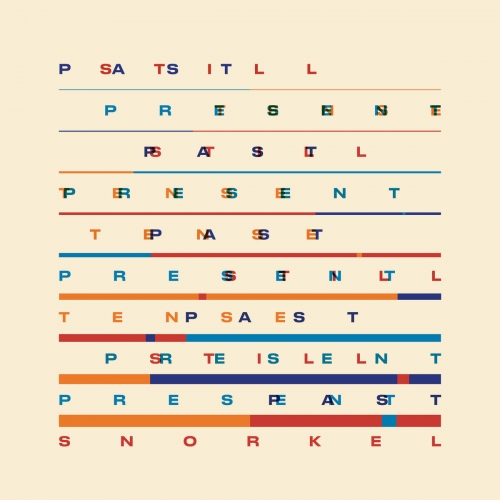
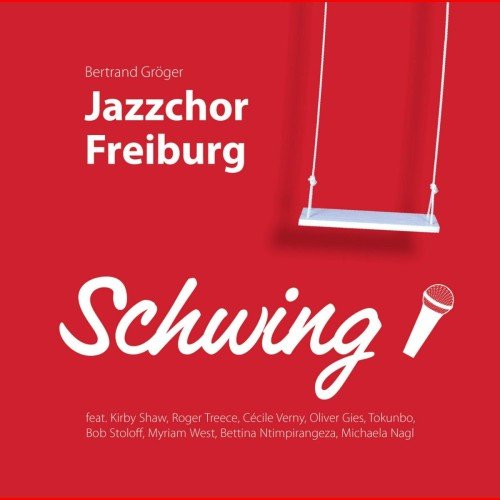

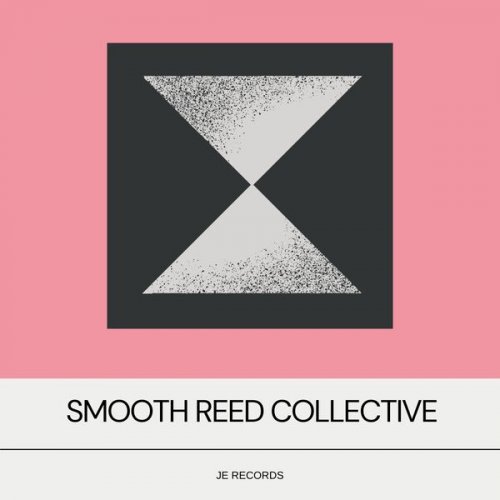


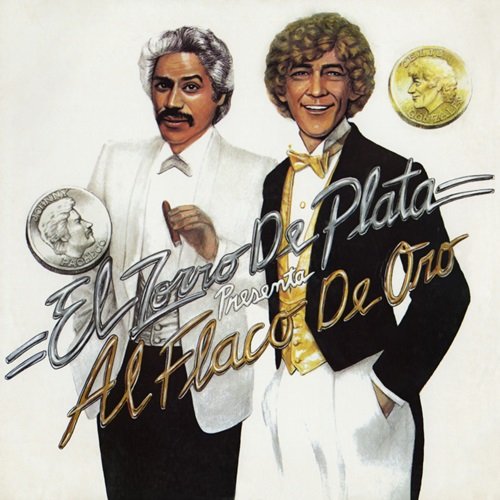
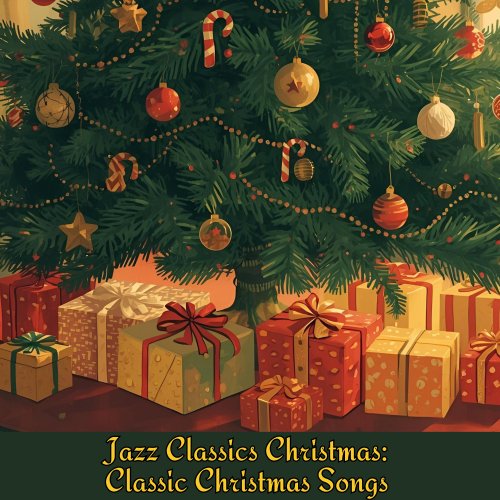
![Tomasz Stańko - Piece for Diana and Other Ballads (Polish Radio Sessions vol. 1/6) (2025) [Hi-Res] Tomasz Stańko - Piece for Diana and Other Ballads (Polish Radio Sessions vol. 1/6) (2025) [Hi-Res]](https://www.dibpic.com/uploads/posts/2025-12/1765788761_cover.jpg)